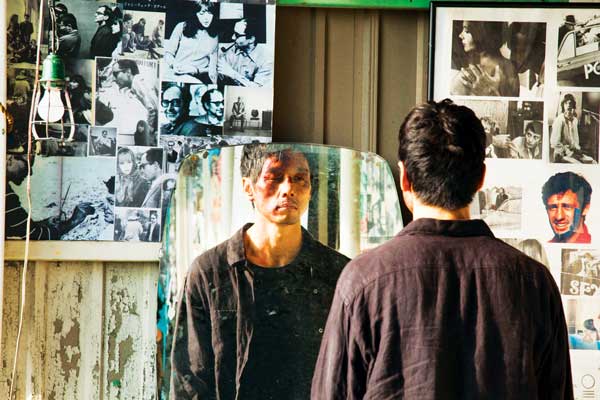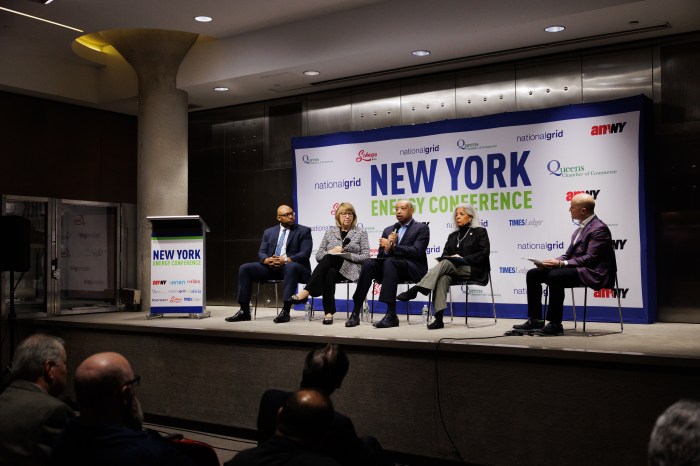 [/media-credit]
[/media-credit]
- Shuji (Hidetoshi Nishijima) gets creative, the hard way.
BY SCOTT STIFFLER | Don’t you hate it when scruffy, self-absorbed, seemingly unemployed creative types rage against society for not supporting the arts? Don’t you just want to hit them…really hard…repeatedly?
If so, a void has been filled by this overbearing yet engaging love letter to the merits of “pure cinema” over the piffle of multiplex diversions.
In a world where suit and tie drones rush to work without giving any thought whatsoever to the soul-nourishing output of John Ford, Akira Kurosawa and Buster Keaton, Japanese filmmaker Shuji keeps their flame alive by holding public screenings on the rooftop of his apartment — when not busy working on his own money pit masterpieces.
Forcibly extracted from one of those picturesque screenings, Shuji soon finds himself in the office of some very bad Yakuza (organized crime) men. There, he’s handed his brother’s head on a platter — actually, in a tastefully wrapped box.
Life in the big city may be cheap, but making art isn’t. So he’s given a bill for his late brother’s outstanding loan of 12,540,000 yen. Wracked by guilt (that money went to pay for his films) and given a deadline (pay up in two weeks or else), Shuji comes to an arrangement whereby he can clear his debt — and maybe his guilty conscience.
Those weights and that boxing equipment littering the gangster’s hangout? They aren’t cutting it as way for enforcers to sharpen their skills — so Shuji hires himself out as a human punching bag.
Apparently he’s too proud to take out a bank loan…or maybe he’s just too big of a credit risk in the eyes of the mainstream culture he loves to rail against (in the street, or on his rooftop, often with the help of a megaphone). No matter. Our hero is determined to meet his obligation the hard way — by serving as the main attraction in a one-sided fight club, which meets in the very room where his brother was murdered.
There’s a fine line between acts of moral fortitude and showy martyrdom. Bruised and bloody, Shuji becomes a rather extreme symbol for the noble sacrifices artists must make in order to create.
As the beatings increase in intensity, the young man with a flair for the dramatic recuperates at night by projecting classic films across his battered (and surprisingly buff!) naked chest and torso. These beautifully rendered scenes have more to say about the healing power of cinema than all of Shuji’s poser rants combined.
Is that this film’s fatal flaw, or its most clever conceit? Hard to say. One thing’s for sure: The final reel will either inspire you to seek out the works of celluloid masters or reinforce the notion that film scholarship is an insular world best left to pasty, self-satisfied screening room nerds. Either way, as Shuji can tell you, it sure beats a kick in the head (or a punch to the gut).
Moody and cerebral — yet bloody and violent — “Cut” doesn’t quite, well, cut it when it comes to broad appeal. But if you don’t mind being preached to about the virtues of art as a gateway to truth, you’ll probably exit the theater as a member of the choir.














